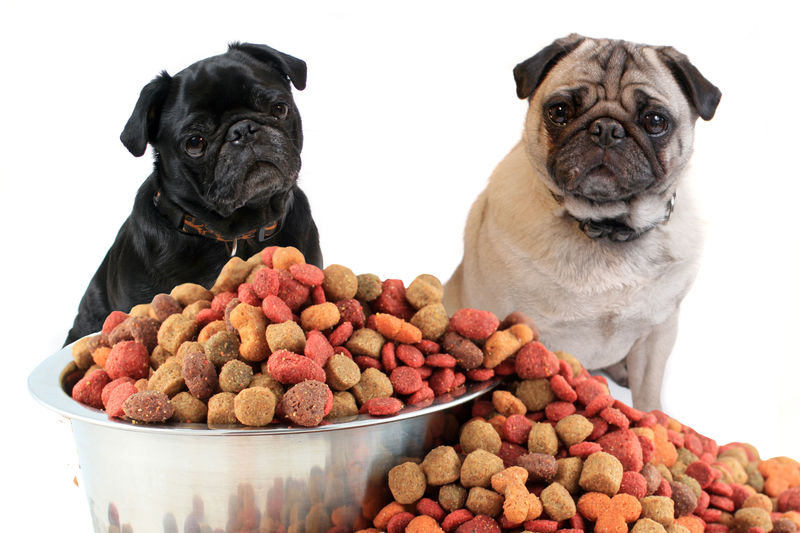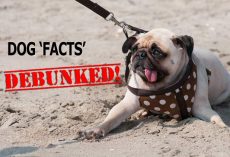If you ever wonder why you need a prescription to feed your pooch certain foods, you're not alone. These doggy parents filed a lawsuit claiming that it's unfair for dog food companies to require prescriptions if foods don't contain medication. Find out what happens!
I frequently discuss “prescription” pet diets here at Mercola Healthy Pets in terms of the cheap, biologically inappropriate ingredients they contain, much like most other processed pet foods on the market.
But if you’ve ever purchased one of these “special” dry or canned diets for a pet, you know how expensive they are, and you might be interested to learn that a group of pet parents recently filed a class action lawsuit against several pet industry companies, alleging they engaged in price fixing of prescription dog and cat food in the U.S. in violation of anti-trust and consumer protection laws.
The plaintiffs, pet owners who purchased prescription diets from one or more of the companies, assert they conspired with each other to falsely promote “prescription” pet food. The specific pet diets mentioned in the complaint include:
Hill’s Prescription Diet
Purina Pro Plan Veterinary Diets
Royal Canin Veterinary Diet
Iams Veterinary FormulaThe complaint points out there’s no reason for the foods to require a prescription, since they contain no drug or other ingredient not commonly found in non-prescription pet diets.
Why Is a Pet Product Containing No Drugs or Other Controlled Substances Being Sold by Prescription Only?
The lawsuit asserts that the prescription requirement allows the defendants to “… market and sell Prescription Pet Food at well-above market prices that would not otherwise prevail in the absence of the Prescription Authorization.”
There are legitimate reasons why “prescription” diets for specific medical conditions should not be fed to healthy animals.
‘Defendants Are Engaged in an Anticompetitive Conspiracy’
The complaint further asserts that the positioning of the pet food as “prescription” is effective in part because all the defendants work together to promote it. The veterinary clinic defendants write the “prescriptions” for the food, which is made by the pet food company defendants, and sold by defendant PetSmart.The lawsuit alleges that selling the pet food as “prescription” is unfair and deceptive under California consumer protection laws. I’ll definitely keep an eye out for activity on this class action lawsuit and update you when there’s progress.
Judge Sides With Purina in Beneful Class Action Lawsuit
In other pet food legal news, last year I wrote about another class action lawsuit brought against Nestlé Purina PetCare’s Beneful brand dry dog food. The plaintiff in that case alleged that Beneful sickened two of his dogs and caused the death of a third.Sadly, despite literally thousands of online consumer complaints and two prior lawsuits filed against this particular brand of dog food, a California federal judge recently ruled that the proposed lawsuit failed to prove the product was unsafe.
Purina ‘Revamps’ Beneful Formula
In a statement so very typical of what we’ve come to expect from the processed pet food industry, Nestlé Purina spokeswoman Wendy Vlieks said of the summary judgment:“Today’s ruling confirms what millions of pet owners already know — that Beneful is a safe, healthy and nutritious dog food that millions of dogs enjoy every day.”
Interestingly, the company recently “revamped” their Beneful formulas. Per PetfoodIndustry.com:
“Meat now is the first ingredient in chicken and beef varieties. Added sugar has been removed from all recipes. According to the company, the Beneful’s recipes now include 22 grams or more of protein per cup. The dog food also includes vegetables and fruits, like spinach, peas, carrots and apples.”
Since there’s no mention of the toxins found by Dr. Tegyes, it’s reasonable to assume Purina didn’t address the issue in their “revamped” formula. So if you happen to feed this stuff to your dog, keep in mind you’re very likely also feeding him small amounts of propylene glycol, mycotoxins, arsenic and lead on a daily basis.
Now that you know what dog food brands to be wary of, it's important to keep your pooch safe. Read food labels and make sure your doggy isn't ingesting any dangerous chemicals or other unnecessary ingredients. Just because your pooch needs to be on a special diet, it doesn't mean that you have to go that direction.
For more information on this lawsuit, check out Healthy Pets.










